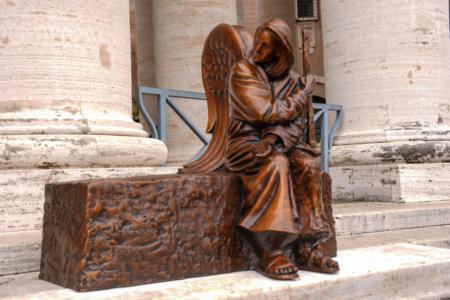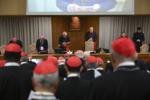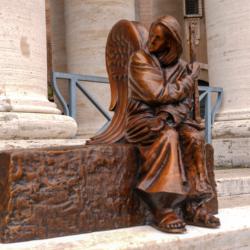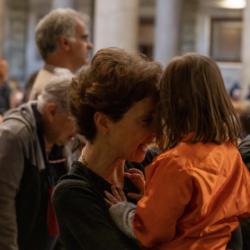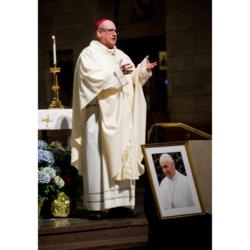MCC joins brief against civil unions
The Massachusetts Catholic Conference joined a brief that was filed Jan. 12 in the advisory opinion request submitted to the Supreme Judicial Court by the Senate regarding a proposed civil unions bill. Following is the text of the summary of argument:
The Court’s decision in Goodridge [vs. Dept. Public Health] should be interpreted only to require the Legislature to clarify the rational basis for the Commonwealth’s marriage laws. It should not be interpreted broadly to require the Legislature to afford any legal recognition to same-sex relationships. The broad interpretation of Goodridge would be radical and unprecedented for at least three reasons.
First, it would intrude upon the traditional and constitutionally guaranteed power of the Legislature to define marriage. It would thus create an entirely novel constitutional principle that runs roughshod over the values of democracy, traditional morality, family stability and child welfare that lie at the heart of legislative competence. It would also preempt and sidetrack the currently pending democratic process to amend the Commonwealth’s Constitution to clarify the definition of marriage.
Second, a broad interpretation of Goodridge would apparently direct the General Court to graft a legal framework (civil marriage) which was tailored and developed to promote one social relationship (husband-wife marriages) onto two other social relationships (male unions and female unions, the former obligatorily motherless, the latter fatherless), that are substantially different. Even if Goodridge requires the Commonwealth to provide some legal recognition to same-sex relationships, which your “amici” deny, this goal must be achieved by means of different frameworks than civil marriage.
Third, Goodridge would allow only 180 days for the Legislature to perform the complex and difficult task of deliberating about what form of legal framework might be appropriate to stabilize or promote same-sex unions.
On the issue presented, therefore, the Court should rule that any of the following legislative actions would satisfy the demands of Goodridge.
The Legislature and/or Executive articulate a clearer version of the rational basis for defining marriage in terms of one man and one woman. This would assuage any concerns raised in Goodridge about the perceived insufficiency of the Commonwealth's justification for its definition, because any rational basis (not just the one asserted) suffices for deferential scrutiny.
The Legislature indicates that it is considering amending the Commonwealth's Constitution, as voters in other states have done. This justifies staying the judgment until this constitutional amendment process is completed, to prevent a vested-rights problem. The promptness with which other states have amended their constitutions after similar rulings should persuade the Court to abstain from enforcing its judgment until democracy is allowed to function.
The Legislature indicates that it is considering what sort of legal protection should be given to same-sex unions, without the unrealistic 180-day time constraint.
The Legislature passes S.B. 2175, the civil unions bill. This would be both unnecessary and inappropriate. But it would be superior to requiring the legislature to include same-sex unions in civil marriage for four reasons. It would intrude less into the Legislature's sphere of competence. It would allow independent development of the law of same-sex unions and husband-wife marriages. It would threaten the sovereignty of other states less. And the alternative broader reading -- including same-sex unions in civil marriage -- would constitute an impermissible "mandate of [the Court's] own moral code."
